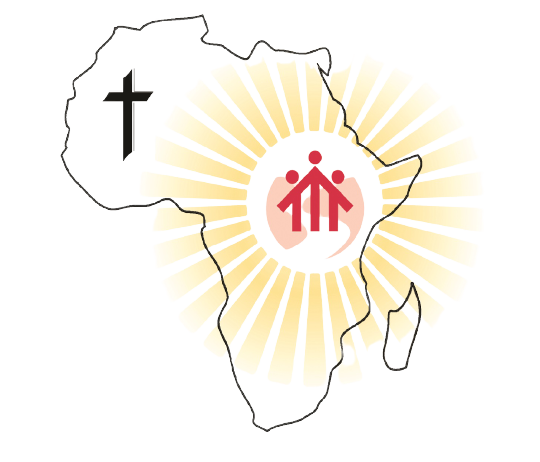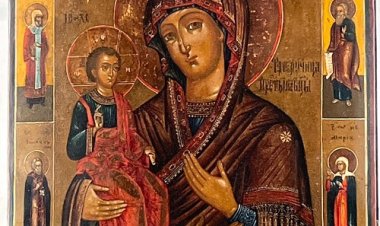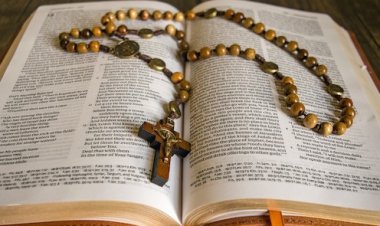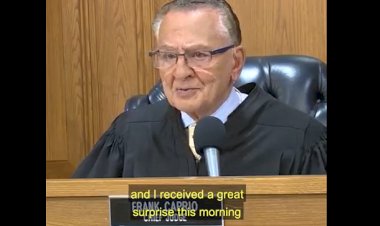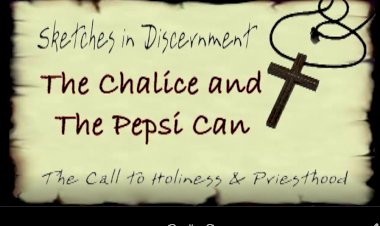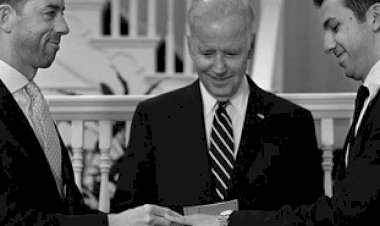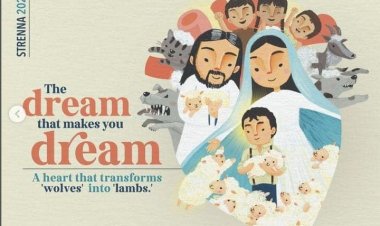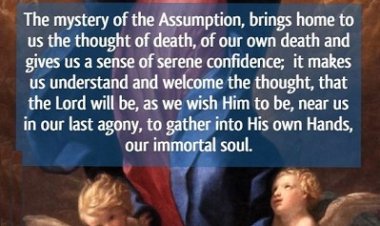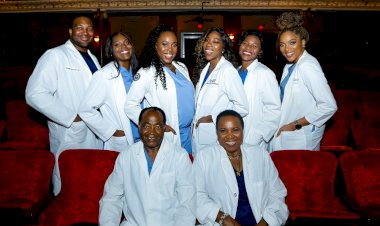DON PHILIP RINALDI - short biography
Fourth successor of Don Bosco
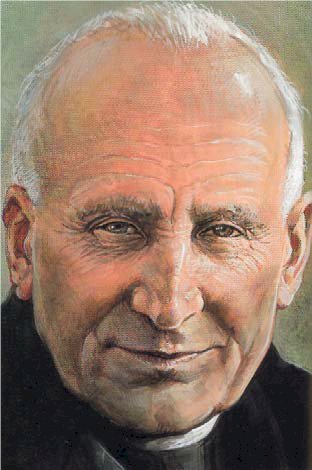
DON PHILIP RINALDI
Third successor of Don Bosco
28/05/1856 – 5/12/1931.
Feastday: December 5
Christopher Rinaldi and Antonia Brezzi had brought up their family in Lu Monferrato, a little village that clung to the top of a hill. Mamma Antonia had faith has huge as the mountains. Every evening she knelt with her nine children before a niche of the Madonna and invited them to repeat after her: “I greet you O Mary. I give you my heart, don’t ever give it back to me.” She would see three of her boys become priests.
Philip was the eighth of the nine children. When he was ten years old (1886), the name of Don Bosco sounded in his ear. In a nearby town of Mirabello, that priest from Turin had opened a “minor seminary,” and his father Christopher took Philip there.
On his dad’s cart, the little boy’s heart began to cringe; like that of all little boys who have to leave their mothers for the first time… But he was a serious and pensive lad and understood that to study was necessary and he had to make that sacrifice.
Fr Paul Albera was his teacher and he would accompany him for several years of his life. He would later write: “For me, Fr Albera was a guardian angel. He was appointed to watch over me and he did it with such charity that it amazes me every time I even think of it.”
Don Bosco came twice from Turin and had long chats with Philip. They became friends. But in the spring Philip was tired of the amount he had to study and besides his left eye began to hurt terribly. One day, when he was particularly tense and was thinking of going back home, a rather brusque assistant offended him when he mocked his manners. Philip didn’t lose his temper. He just went to the Rector and told him that he wanted to go back home. It wasn’t a whim. Papa Christopher came and took him home.
When Don Bosco reached Mirabello for the third time and didn’t see Philip he was rather disappointed. He wrote him a letter, pleading with him to reconsider. Philip received several letters from Don Bosco in the following years: in each of them was an invitation to return, but Philip felt rather distant by now.
In 1876 Philip turned 20. The parents of a decent girl came to Papa Christopher to propose to his son the marriage to their daughter. But Don Bosco too arrived from Turin, determined to do battle and take Philip with him.
There was a long decisive interview. Philip with the quiet tenacity of peasants revealed all his difficulties. Don Bosco responded to each of them. “He won me over little by little,” Don Rinaldi would write later. “My parents left me free and my choice went with Don Bosco.”
At 21, the peasant of Lu Monferrato reopened his books and started studying again.
At 24, kneeling before Don Bosco Philip makes his vows of poverty, chastity and obedience to God, becoming a Salesian.
At 26 (December 23, 1882) Philip Rinaldi was ordained a priest.
During those years there was a baffling phenomenon: Philip was almost impelled forward, led by Don Bosco’s hand. He himself recounts it: “Don Bosco used to say to me: on such and such a day you will write such and such exam or you will take such and such Order. I obeyed him moment by moment. It was Don Bosco who sketched out my life.” The biographer Don Ceria comments: “It was a most unique case, indeed the only one known.” Don Bosco had to read very clearly into the future of that young man.
January 1888.
Don Bosco was dying: he would die on the last day of that month. Fr Rinaldi who was appointed by him as director of adult vocations went to see him. He wanted to confess to him but found him too feeble and almost gave up. Then: “Don Bosco,” he said, “I would like to make my confession, but I wouldn’t like to tire you. Let’s do this: I’ll tell you my sins and afterwards you give me a word, just one.”
He confessed. Before absolving him, Don Bosco said just one word to him: “Meditation.”
“That word made a great impression on me,” he would say. “It was like a revelation of the importance that Don Bosco gave to meditation.”
Twelve years in Spain
Don Rua, Don Bosco’s successor, at the head of the Salesian Congregation, one day called Fr Rinaldi to him and simply said: “I am sending you to Sarrià, Spain. You will have to deal with some very delicate issues.”
The Salesian school in Sarrià-Bacellona was in crisis. Some “inconveniences” threatened the prestige of the Salesians and the number of pupils were reduced to half. At 33, Fr Rinaldi opened the Spanish Grammar. In Sarrià he discovered an atmosphere over which he lost sleep: The Salesians were scarce and discouraged, discipline and application to study among the youngsters was falling apart. Fr Rinaldi restructured the work and the discipline.
Not all the youngsters were accustomed to the slow and lazy pace of change. One of them entered the Rector’s office and poured out all his anger across the table. He concluded: “Now, I’m going to pack my suitcase and go home.” Fr Rinaldi calmly let him finish and then serenely said to him: “You’ve said what you think, and I’m grateful to you. I will keep what you’ve said in mind. Now, why do you want to go home?”
Faced with the perplexity of the boy he added seriously: “My son, you will become a Salesian, and a great Salesian.” And that was what happened. Three years were sufficient to restore the Salesian work and to reveal the mettle of this huge Piedmontese priest.
From Turin, Don Rua informed him that he had been nominated Provincial of all the works in Spain and Portugal. In his notebook, Fr Rinaldi chalked out a very short programme: “I will be a father. I will avoid harsh ways. When they come to talk to me, I will not show that I am tired or in a hurry.” It wouldn’t be just words. The elderly Archbishop of Valencia, Olaechea would say: “I have the impression that I have never found, in my not-so-short life, a priest who has given me a nobler idea of God’s loving paternity.”
In 9 years, Fr Rinaldi founded 16 new works. The greatest work was done regarding to the formation of Salesians. He candidly reminded everyone: “We exist to work among poor youngsters. Working for them does not mean leaving them resigned to their poverty but helping them grow through social and cultural activities.”
In those days, the Salesian Provincial was also in charge of the Daughters of Mary Help of Christians. In Spain at the time a woman had to be good and devout and that was all. Fr Rinaldi spoke to the Salesian Sisters clearly and concisely: “We fall into a very serious error if piety is not combined with suitable instruction. Persuade yourselves that when the girls do not progress in their studies and their work, the world is given a powerful weapon to accuse religious of ignorance and idleness.”
February 17, 1901. While attending a children’s theatre performance alongside Don Ru a was the Prefect General of the Salesians, Fr Belmonte. He suffered a cerebral stroke and in a few hours was dead. He was only 58 years old. He had managed his role with great efficiency as number-two in the Salesian Congregation. Don Rua was very upset. After reflecting and seeking advice and after much prayer he telegraphed Fr Philip Rinaldi and summoned him to Turin as soon as possible. He would be the new Prefect General.
Fr Rinaldi, as always, obeyed. But leaving Spain cost him dearly. He was only 44 and was going to lock himself up in the office of the Prefect General. He was going to be in charge of all the economic management and the thorniest disciplinary issues of the congregation. Thinking of this made him dizzy.
In order not to let dryness seep into his heart he began getting up very early at five in the morning, celebrating his Mass and hearing confessions for the next two hours in the Basilica of Mary help of Christians. “I need to feel like a priest,” he would say, as if to justify himself.
On April 6, 1910, at the age of 73, Fr Rua passed away. It was Fr Rinaldi who had to break the sad news to the Salesians and to convene the general chapter who would elect the “third Don Bosco.”
Fr Paul Albera was elected; the Salesian who fascinated Philp with his kindness in Mirabello. Fr Rinaldi was re-elected as Prefect General.
- Two thousand Salesians in military fatigues! The First World War broke out all over Europe. In that great agony of the peoples, even the Salesian Congregation suffered its fair share of painful agony. Some two thousand Salesians, in various European countries were conscripted and had to
wear military fatigues and fight in trenches opposite each other. Many Salesian houses were requisitioned and turned into barracks, military hospitals, makeshift shelters for refugees and orphans. Fr Rinaldi had the difficult task of providing for the material needs of those confreres who were fighting on the frontlines. Yet, during those very difficult years, 1914-1918, Fr Rinaldi managed to bring to birth two works that would extraordinarily develop in the years ahead: The International Federation of the Past Pupils and the association of secular nuns who would later be called Volunteers of Don Bosco.
In October 1921, Fr Rinaldi had the sad task of announcing to the Salesians for the second time, the death of their Rector Major: Fr Paul Albera who died almost suddenly.
Fr Rinaldi was 65 years old. The hair on his sideburns had turned almost white. Behind his small metal-rimmed glasses his gaze had become gentler and a little sad. His tall and sturdy body had grown heavy in the twenty years he sat working in the office of the Prefect General. Now he hoped that the Salesians would relieve him of this difficult post.
The “fourth” Don Bosco
On April 24, 1922 the general chapter met at Valdocco to elect the new Rector Major. At nine o’clock that morning, Fr Rinaldi came out of his office in his usual black battered soutane carrying over his shoulder his overcoat that was missing one of its large buttons. In his pocket he carried a note he would read to the assembly: “Please elect a young Prefect. This is a charge that requires a lot of activity and work. As you get older, it is difficult to bear all that responsibility (…) We need young people in the chapter.”
The general chapter however, did not give him a chance to read that note: they elected him the new Rector Major on the first ballot. After a long applause, Fr Rinaldi stood up, disconcerted, and said: “What have you done? … This election is confusing for me and for you. It makes us believe that the Lord wants to mortify the Congregation, or that Our Lady wants to show us that she alone is at work among us. I assure you that it is a great mortification for me. Pray, so that I do not spoil what Don Bosco and his successors have done…”
But one of the senior Salesians, Fr Francesia, who had lived a long time close to Don Bosco said: “He has everything except Don Bosco’s voice.” In Fr Philip Rinaldi, the Salesians had their “fourth Don Bosco” from that day on.
From the very first months as Rector Major, Fr Rinaldi gave the Congregation a strong missionary impulse. Cardinal John Cagliero, Don Bosco’s first missionary, celebrated 60 years of his priesthood. On that great occasion Fr Rinaldi transformed the Salesian work in Ivrea into the first “Salesian Missionary Institute.” From that moment on, very young people would leave for the missions to be able to easily assimilate local languages and customs.
The number of missionary aspirants grew so great that in the next few years nine other missionary institutes were opened. Fr Rinaldi supported the flourishing of missionary vocations with the publication Young Missionaries (Gioventù Missionaria) and he organized the Missionary Association
of Salesian Youth. In the nine years he was Rector Major 1868 Salesians and 613 Daughters of Mary Help of Christians left for the missions.
To keep the Salesians united Fr Rua and Fr Albera had already made long journeys. Fr Rinaldi, even if every trip left him exhausted, understood that he had to follow their example, and he adapted. He visited the Salesians and the FMA in the nations that had been torn apart by the great war: Poland, Austria, Hungary, Germany and France and from there he went to his beloved Spain.
The Congregation doubled in size
On June 2, 1929 Fr Rinaldi lived to see his most beautiful day: Don Bosco was declared blessed by Pope Pius XI. In that year fatigue and age (73 years old) began to take its toll on him alarmingly.
He had to suspend his journeys. He spent long periods in prayer. “The interior life,” he told the Salesians, “is the presence of God within us, remembered, invoked and loved. It is necessary to give spiritual life to schools, to recreations and this without speaking but just by thinking about it.”
On the morning of December 5, 1931, with an exhausted heart Fr Rinaldi was sitting with book in hand. His secretary was in the next room, Suddenly, he heard a cough. He went to see if he needed anything and found him with his head resting on his book. He had gone to God without disturbing anyone.
The Salesian Congregation that he had received from the hands of Fr Paul Albera had 4,788 Salesians who were working in 404 foundations. Now, after nine years during which he was afraid of “spoiling” what Don Bosco had done, had reached 8836 Salesians who worked in over a thousand foundations around the world.
On April 29, 1990 John Paul II elevated this humble figure of Fr Philip Rinaldi alongside Don Bosco and Don Rua, declaring him blessed.
